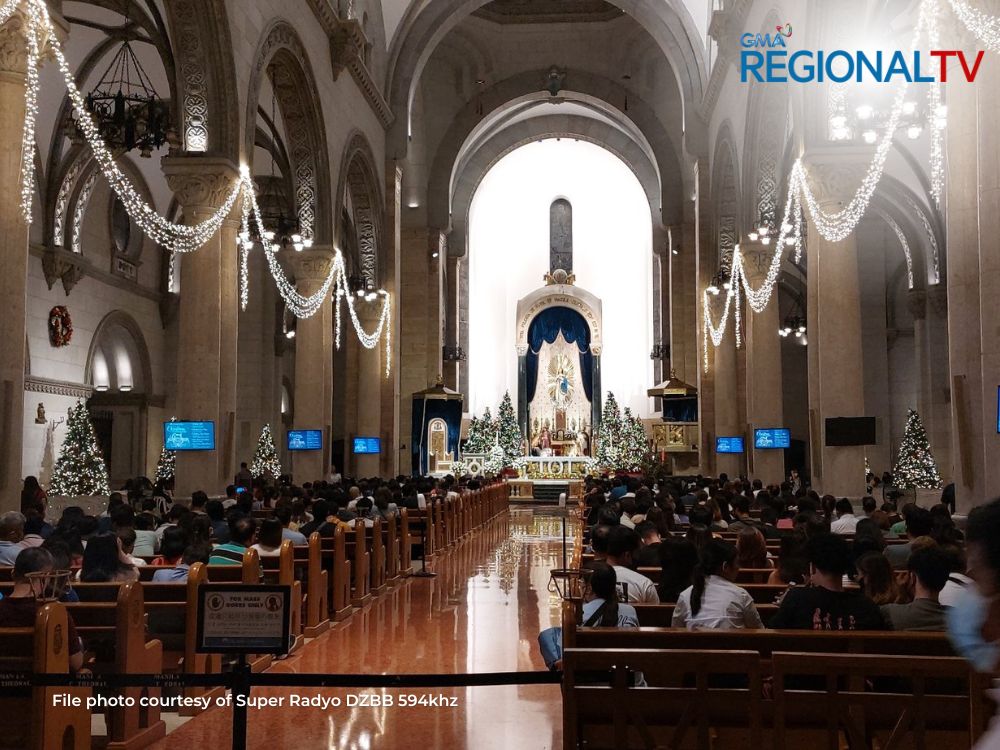Strasbourg, France may be recognized popularly as the world’s ‘Christmas Capital,’ but the Filipino brand of Christmas makes a strong case. After all, how could the celebration not get a nod - with the parol-filled streets, overflowing passion for Jose Mari Chan's 'Christmas In Our Hearts,’ and passionate churchgoers from different walks of life during Simbang Gabi?
Especially Simbang Gabi.
The Filipino Christmas tradition that is Simbang Gabi or ‘misa de gallo’ (Spanish for ‘rooster’s mass’) has long been a staple. With all its Spanish colonial roots and religious underpinnings, Filipinos have embraced the different nuances of its symbolic appreciation, from the promise of a granted prayer after completing all nine Masses, to making it an opportune moment for family bonding.
Whatever the reason may be for why Filipinos continue to wake up at dawn for nine consecutive days, they all keep a longstanding cultural building block alive. Here are some of them, from the faithful from different areas in the Philippines:
A GESTURE OF GRATITUDE
For most Filipinos, the Simbang Gabi commitment is a willing gesture to express gratitude for all the blessings they have received. Cristalyn Dollison, a government employee from Sorsogon, sees it as an unforced sacrifice.
"Pumupunta ako bilang sakripisyo para kay Lord at pasasalamat para sa mga blessings and guidance na na-receive sa buong taon. Tapos pasasalamat din kay Lord na wala akong malubhang sakit at ang aking pamilya ngayong taon," she shares.
For some, what began as an inherited family endeavor has turned into a personal mission.
“Growing up in a Filipino household, I was instilled with the importance of faith and cultural traditions. The motivation to finish the Simbang Gabi goes beyond tradition; it's a personal vow to express gratitude to Jesus for the abundance He has provided throughout the year,” according to Zarah Louise Mahinay, 25, from Midsayap, North Cotabato.
This nine-day commitment is also a spiritual journey for Zarah, believing in its power for reflection and repentance. “It's not just a ritual but a meaningful connection with my faith and a time of profound spiritual renewal,” she says.
Eyan from Davao City and Eva Marie Barrigas from Mandaue City, Cebu both see the tradition not as an obligation but a self-imposed offering in honor of the birth of Jesus Christ.
“It is not an obligation that requires motivation. It is a selfless sacrifice that I could offer to Jesus, a birthday gift. It is deeply rooted in my faith,” Eyan says.
“I do not see Misa de Gallo as a tradition. I see it as an opportunity to show my love to the Creator. It gives me the chance to grow more in faith,” explains Eva Marie.
KEEPING A RELIGIOUS TRADITION ALIVE
For Midsayap, North Cotabato-based Ingle, 48, Simbang Gabi is a key mandate for Catholics. “I believe that it is our deep obligation as Catholics to attend every mass held for our faith and belief.”
FULFILLING A MISSION
Elma from Sorsogon goes to dawn Masses not only for her faith but also for the opportunity to serve others.
"Pumupunta ako ng Simbang Gabi bilang sakripisyo, atsaka mayroon kaming obligasyon na pagpa-lugaw sa mga simbahan tuwing simbang gabi,” she explains.
Maria Ruth Juan from Cebu City attends Simbang Gabi in support of her son.
“I want to support my son, now in his teens, who is an acolyte. I have tagged him along in the past dawn Masses, and now that he has displayed a strong interest in church service, it makes me glad and proud as a mother because it only shows that I have planted the seed of faith in him, and that seed is growing roots,” 36-year-old Maria Ruth shares.
CHALLENGING THE SELF
Attending Sunday Masses regularly already takes some form of discipline especially at a time where workload extends even on weekends due to an ever-shifting work dynamics. Completing all nine entails sacrificing sleep, but for some, it can be an important personal litmus test.
“I see it just as another test of my character, a test of how much discipline and honor I have for another random ritual or habit,” says John David Ting from Bacoor, Cavite.
“(Also) because I get to go somewhere I'm possibly alone. I like being in my own company, sobrang bonus na lang na aligned siya with my faith in the Lord,” added the 24-year old.
Religiosity varies from one person to another. Needless to say, one’s affinity to rites and traditions like Simbang Gabi also exists against a backdrop of interwoven factors and within a spectrum of intimacies.
Simbang Gabi prevails to prove its significance as a social connector and a nurturer of collective effervescence among Filipinos.
(With contributions from Eleanor Valeros, Vincent John Abordo, and Earl John Balungay)




